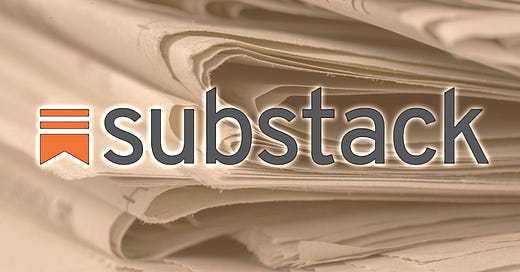When Dictators Rule
A dictator has two ways to rule a nation economically: nationalize all industries (communism) or control all industries through laws and regulations (fascism). Substack needs protection from both.
Canada features a mix of economic institutions.
Across the broad Canadian economy, centralized institutions of power and control have popped up throughout our history. Every industry has been affected and, in turn, every customer, business owner, employee and supply chain participant.
Capitalism was the dominant form of economic activity a century ago but it has been squeezed, abused and misshapen over time to become subservient to the Mandarins of Public Authority.
The term “Mandarins” typically refers to high-ranking civil servants or bureaucrats who play influential roles in government administration.
A list of notable individuals in Canada who have held significant positions in the public sector is provided in the link above.
Mandarins in Media.
In the media sector, the Canadian Broadcasting Corporation is 100% owned and operated by the federal government. Its employees and operations are tax funded. No enterprise ever receives government funding without “strings attached”, including carrying out the wishes of the man with the chequebook.
BING Copilot reports:
The Canadian Broadcasting Corporation (CBC), also known as Société Radio-Canada, was founded on November 2, 1936. It began as a radio network and later expanded to television, going on air on September 6, 195212. The CBC aimed to provide Canadians with high-quality indigenous information and entertainment programming, safeguarding against American cultural influence. Its creation followed earlier experiments with public broadcast ownership in Canada, including the Canadian National Railways’ radio network during the 1920s1.
The Canadian Radio-television and Telecommunications Commission (CRTC) is an
“… administrative tribunal that operates at arm’s length from the federal government” and “dedicated to ensuring that Canadians have access to a world-class communication system that promotes innovation and enriches their lives. Our role is to implement the laws and regulations set by Parliamentarians who create legislation and departments that set policies. We regulate and supervise broadcasting and telecommunications in the public interest.”
The CRTC has no direct elected representation to provide public input to policy. Canadians must hope and pray that their elected Members of Parliament, from much more than ‘arm’s length’, will be effective as their “voice” on such matters.
Canada’s new Online Harms Act (C-63)
The federal government has been recently awarded new autocratic powers to control speech and content on the Internet:
The new framework would create a Digital Safety Commission to administer and enforce the Act, a Digital Safety Ombudsperson to support social media users and advocate for the public interest in relation to online safety, and a Digital Safety Office to support the Commission and Ombudsman.
C-63 was crafted to make it appear primary about the protection of children from harmful internet content. How many children do you know who are active Substack readers?
As a daily user of Substack since January 2022, I have never seen content that might be offensive to children. However, the meaning of many words has been twisted like a pretzel for political reasons. Who knows what ‘offensive’ may mean tomorrow after some emotionally-delicate “critical race theory” or “trans” activists begin to cast their spells on the word.
Will Substack will be impacted by C-63?
BING Copilot answered:
As of now, the specific impact of Canada’s Online Harms Act on Substack remains uncertain. The Act primarily targets larger social media platforms, and Substack, being a newsletter and publishing platform, may not fall directly under its scope. However, further regulatory details will determine how Substack and similar services are affected. Stay tuned for updates!
Did Substack dodge a bullet?
For the sake of Freedom of Speech and our Freedoms of Informed Choice, let’s hope that some nameless, faceless regulator does’t create a new set of rules that targets Substack.
C-63, like all Acts of Parliament, is open to interpretation by regulators. Career bureaucrats, with too much power and time on their hands, are known to wield hammers to nail down every public “issue” that lands on their tax-paid desk.
Needless to say, I don’t trust Ottawa’s Mandarins of Public Authority or their supreme leader as far as I can throw them.




